Virtual Viewpoints Podcast: Stephen Osborn, RIDE and Daniela Fairchild, Office of Innovation

Stephen Osborn of the Rhode Island Department of Education and Daniela Fairchild of Rhode Island’s Office of Innovation provide some background on each of their offices’ work around personalized learning and touch on their own roles in the Integrated Learning Systems initiative. They also share in more detail their hopes for this grant program’s accomplishments. This… Read More ›
Student Experiences with Student Centered Learning
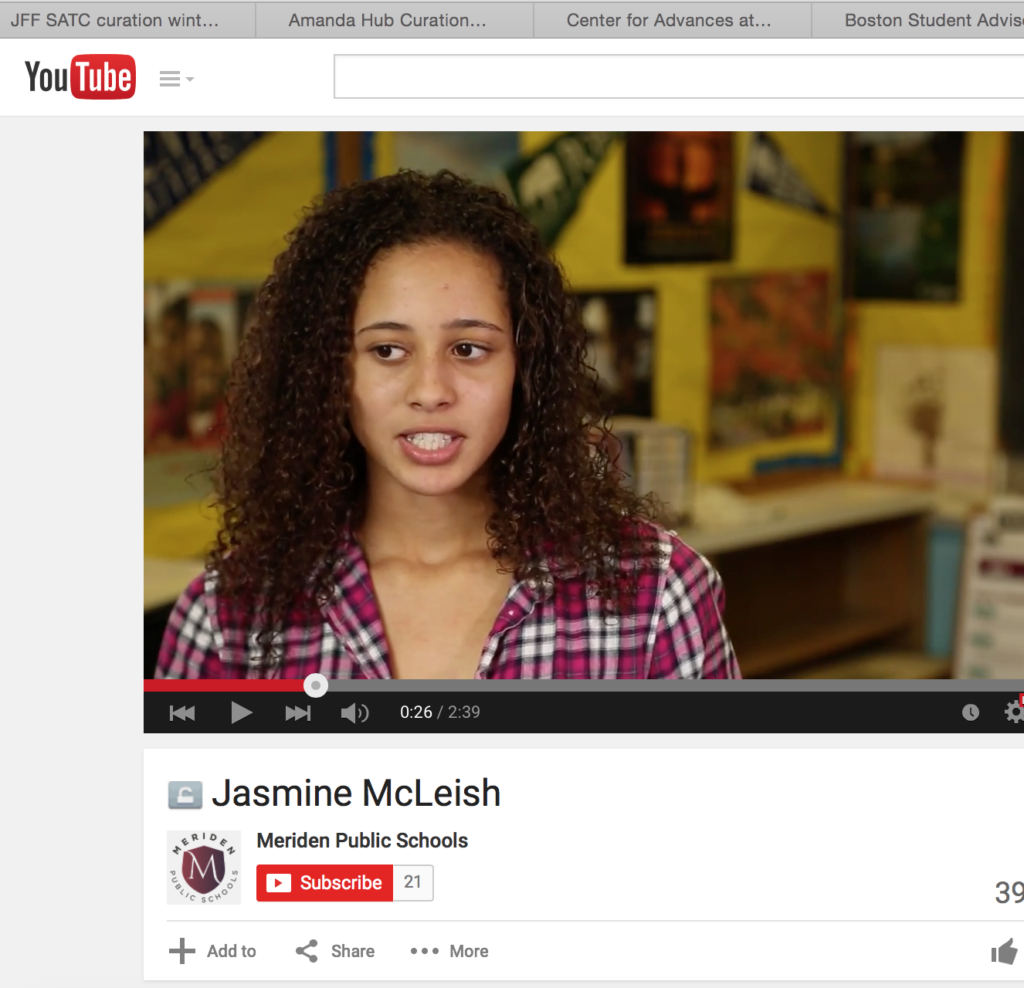
This video series highlights the experiences of students in Meriden Public Schools in Connecticut. The first video provides an overview of students’ thoughts on several key components of student-centered learning: collaboration, use of technology, choice, real world application, and voice/communication. The following nine video clips each feature a student. Students discuss the use of technology… Read More ›
Student-Centered Learning: Functional Requirements for Integrated Systems to Optimize Learning
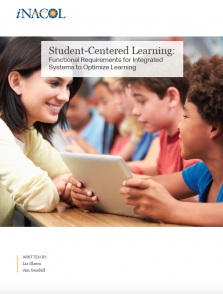
This paper illustrates the technical requirements and functionalities that learning management systems need to shift toward student-centered instructional models. This comprehensive framework will help districts and schools determine what systems to use as they begin their journey toward student-centered learning, as well as how systems integration aligns with their organizational vision, educational goals and strategic plans.… Read More ›
Maximizing Competency Education and Blended Learning
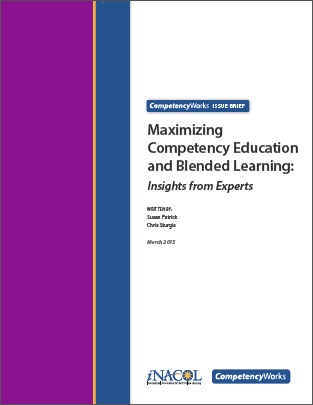
This brief is based on a two-day conversation with twenty-three incredibly insightful people who work in competency education, personalized learning, and blended learning. There are several parts to the paper, including: an exploration of the relationship between personalized learning, competency education, and blended learning and the concerns about equity that arise in each; issues that district… Read More ›
OER Commons

This website, Open Education Resource (OER) Commons, is a database of over 50,000 open educational resources and free digital content tools including lesson plans, electronic textbooks, and interactive mini lessons. The database is searchable by subject, grade, and material type. Each entry includes clear terms of use and access to the alignment tool to evaluate… Read More ›
Personalization vs. Differentiation vs. Individualization Chart

This chart helps clarify the differences between the terms “personalization,” “differentiation,” and “individualization.” “Personalization” is learner-centered. The other two, “differentiation” and “individualization” are teacher-centered. “Personalization” or Personalized Learning means the learner is driving his/her learning. When the learner takes responsibility for his/her learning, teaching and learning changes. The roles of the teacher and learner change.… Read More ›
Leadership in Action: What are Personalized Learning Pathways?

This issue brief from the New England Secondary School Consortium’s Leadership in Action series outlines what personalized learning really means. Personalized learning pathways encourage students to pursue their passions while encouraging them to take more responsibility for their education. Source Organization: New England Secondary School Consortium (NESSC) Visit the Resource
A Step-by-Step Guide to Personalized Learning

This report offers a six step approach on how to create a classroom environment that gives each learner a voice and choice. It first provides the background on what is and what is not “Personalized Learning.” Then the authors provide a condensed version of their “Stages of Personalized Learning,” recognizing that achieving personalization within a… Read More ›
Mean What You Say: Defining and Integrating Personalized, Blended and Competency Education

This paper is intended to provide a scan of the literature and expand the knowledge base for the field to integrate the core ideas of personalized learning, blended learning, competency education, and standards. The goal of the paper is to explain the nuances of key terms used across the field of K-12 education related to… Read More ›
Competency Education Can Address Readiness Gaps – But Not Alone
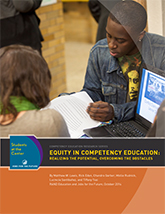
My youngest brother’s senior year of high school—in a public school in New Jersey—was also my first year running a competency-based high school for over-age and under-credited youth in St. Louis. It is hard to describe just how different his experience was compared to my students’. My brother attended one of the best public high… Read More ›
Teaching Perseverance and Resilience
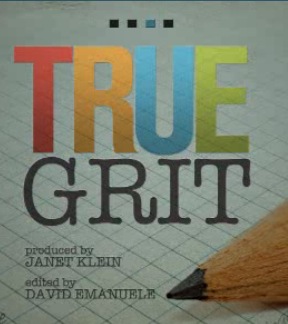
Paul Tough’s best-seller, How Children Succeed: Grit, Curiosity, and the Hidden Power of Character, dramatically underscores what cognitive psychologists like Carol Dweck and Angela Duckworth have found in their research: that character—not cognition—is central to success and that character can be taught. Terms like growth mindset, perseverance, and resilience have entered the vocabulary of educators… Read More ›
What Were They Thinking? Exploring Teenage Brain Development: A Lesson Plan for High School Students
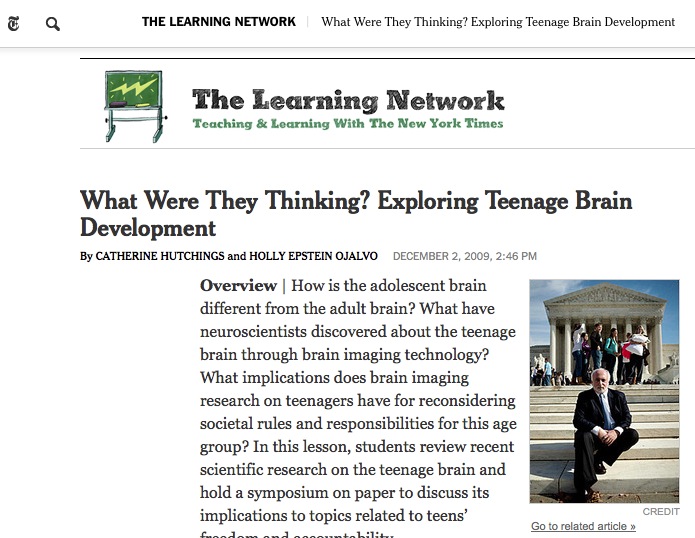
This New York Times’ lesson plan was created to introduce students to the adolescent brain. By the end of the lesson, students should be able to answer the lesson’s guiding question: What implications does brain imaging research on teenagers have for reconsidering societal rules and responsibilities for this age group? Developed by: Teaching and Learning… Read More ›